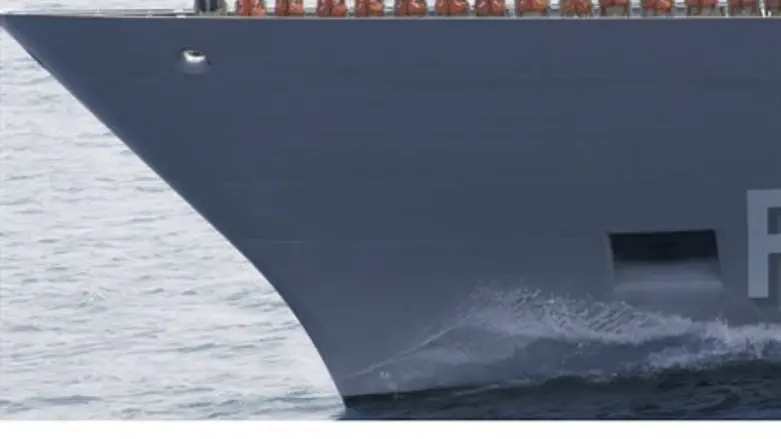
On Friday, October 3, a day after US Vice President Joe Biden pontificated about Turkish President Recep Tayyip Erdogan’s “desire” to have “no Turkish soldiers” remain in Cyprus, Turkey sent Turkish-Greece-Cyprus tensions soaring by issuing a Navigational Telex, or NAVTEX, according to which Turkey was sending a seismographic vessel to explore areas in the Cypriot Exclusive Economic Zone (EEZ) in Cyprus's southern waters.
In response, Nikos Christodoulides, the Cypriot government spokesman, said that Turkish "harassment in any way of the company which operates within the EEZ of the Republic, is in no way compatible with the orderly conduct of the talks," adding that "this is a clear message, which we expect to reach its target and to have results."

According to the Cyprus Mail and other Cypriot news sources, the NAVTEX notifies mariners and countries that Turkey, as a sovereign, is reserving areas south of Cyprus for seismic surveys from October 20 to December 20 of this year. Turkey has basically issued a stark warning Cyprus, America and Israel that Turkish exploratory vessels were under Turkish sovereign protection, and were not to be disturbed even though they were exploring in areas south of Cyprus, an action that Turkey had never taken before.
Prior to this NAVTEX, the Eastern Mediterranean was already tense due to the fact that the Turkish armed forces had deployed the Turkish warship TCG Gelibolu to the south of Cyprus, and had further announced that the warship would continue to monitor the activities of Italian firm ENI’s drillship in block 9 in the waters south of Cyprus.
The TCG Gelibolu is participating in an ongoing Turkish Naval operation, dubbed “Mediterranean Shield.” Under Operation Mediterranean Shield, Turkish ships are ostensibly “conducting maritime security operations to provide for the safe and secure movement of vessels at sea and to deter terrorism.”
In fact, the TCG Gelibolu could be setting the stage for actual armed hostilities.
The TCG Gelibolu is an F120 Koln class frigate bought from Germany in 1982. It is 105 meters long, displaces 2750 tons with full load, and carries torpedoes among its many defense systems. The warship's movements and actions could send events spiraling out of control.
Not surprisingly, on Sunday and today, the rhetoric on both sides escalated.
Following the Turkish NAVTEX, on Saturday, the Turkish foreign ministry issued a press release denouncing the “Greek Cypriot Administration’s (GCA) continuing unilateral research activities of hydrocarbon resources in its so called Exclusive Economic Zone, without taking into account the Turkish Cypriots’ detailed and concrete cooperation proposals for a fair sharing [sic].”
The statement added: “Turkey calls on the international community to act in order to prevent the provocative and unilateral steps of the GCA. Until it is done, all kind of support to the TRNC’s [Turkish Republic of Northern Cyprus] future steps of conducting seismic research activities, acquiring a drilling platform and dispatching it to an area to be determined, which are necessary to protect its inherent rights over these resources, will be provided by us.”
Athens issued a strict warning to Ankara, saying: “Either respect International Law concerning Cyprus’s rights over gas and petroleum exploration within its territorial waters and continental shelf, or face the consequences for your EU membership”.
Konstantinos Koutras, spokesman for the Greek Ministry of Foreign Affairs said that, “Cyprus cannot tolerate any further violations of International Law.” Koutras also warned that “Turkey’s behavior will decide its European future and the negotiation process on the Cyprus matter.”
Koutras’ warning was answered yesterday by the Turkish Foreign Ministry, which called upon the international community “to take action to prevent the provocative and one-sided steps taken by the Greek Cypriot side.”
Making matters worse, the Turkish NAVTEX designated and reserved coordinates that would trespass into Cyprus’ Southern water EEZ Blocks 1, 2, 3, 8 and 9. These are the blocks roughly between Cyprus and Israel. Inside sources told the Cyprus Mail that “essentially Turkey has bisected the region between Cyprus’ southern coast and Egypt, as if Cyprus does not exist.”
It appears VP Biden’s “optimism” regarding a peaceful Cyprus resolution may run into rocky, and perhaps even into deadly, shoals.